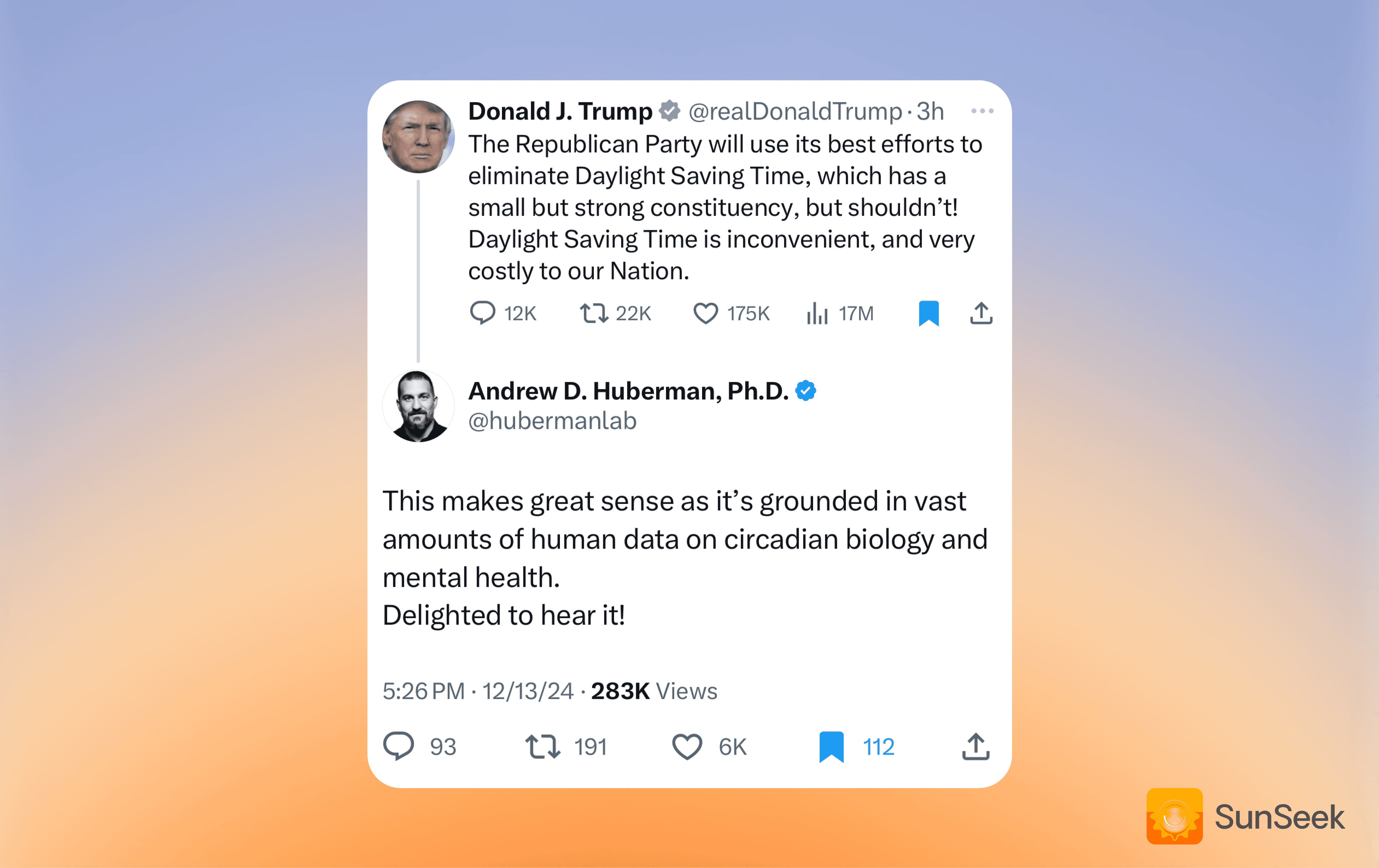
Americans stand to gain improved health and well-being by embracing the end of Daylight Saving Time, opening doors to better sleep, mood, and productivity.
In a recent tweet, President-elect Donald Trump announced plans to eliminate Daylight Saving Time (DST), citing its inconvenience and cost to the nation. This move has sparked discussions across various sectors, particularly among health experts who have long debated the impact of DST on human health.
Andrew Huberman, a renowned neuroscientist, responded positively to the announcement, highlighting the vast amounts of data supporting the benefits of aligning our daily schedules with natural light cycles. But what does this mean for American health, and why is it significant?

The Science of Circadian Rhythms
Circadian rhythms are natural, internal processes that regulate the sleep-wake cycle and repeat roughly every 24 hours. These rhythms are influenced by external cues like sunlight and temperature. Disruptions to these rhythms, such as those caused by DST, can lead to various health issues, including sleep disorders, depression, and even cardiovascular problems.
The Negative Impacts of Daylight Saving Time
Loss of Productivity: The transition into DST often results in a loss of sleep, which can lead to decreased productivity. Studies have shown that the Monday following the spring time change sees a noticeable dip in workplace efficiency and an increase in workplace accidents, particularly in the U.S.
Mental Health Challenges: The abrupt shift in time can exacerbate mental health issues. The loss of an hour of sleep in spring has been associated with increased rates of depression and anxiety. This disruption can particularly affect those already vulnerable to mood disorders.
Health Risks: Beyond mental health, DST has been linked to an increase in heart attacks and strokes. The sudden change in time can disrupt the body's natural rhythm, leading to stress and adverse health effects.
Economic Costs: The cumulative effect of these disruptions can lead to significant economic costs, from healthcare expenses to lost productivity, impacting the American economy.
A Step Towards Better Health
The potential removal of DST aligns with a growing body of evidence supporting the synchronization of our daily activities with natural light patterns. This change could lead to improved sleep quality, enhanced mood, and overall better health for Americans.
Optimize Your Sun Exposure with SunSeek
As we await further developments, it's crucial to consider how such policy changes can impact our daily lives and long-term health. To help you make the most of your sun exposure and maintain optimal circadian health, consider using SunSeek. This innovative app provides real-time sunlight updates and personalized recommendations to optimize your vitamin D levels and circadian rhythm. As Andrew Huberman, Ph.D. says, getting morning sunlight is one of the single best things you can do for your health.
Embrace a healthier lifestyle with SunSeek and stay in tune with nature's clock.
The conversation around Daylight Saving Time and circadian health is just beginning, and it promises to bring about significant insights into how Americans can live healthier, more balanced lives.


